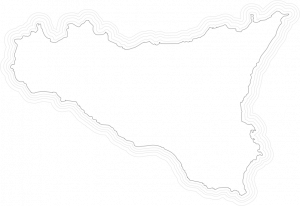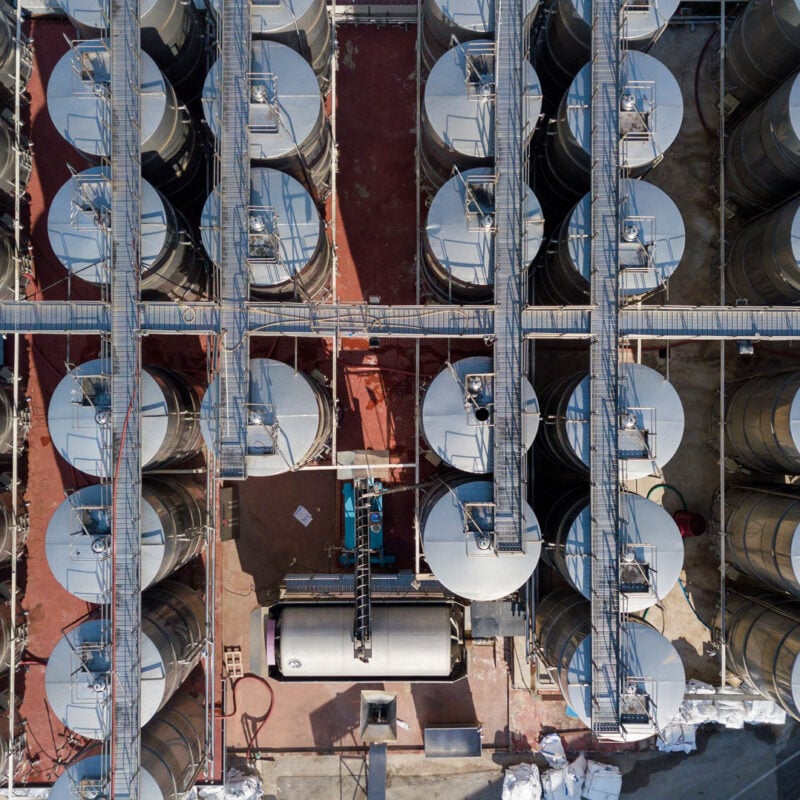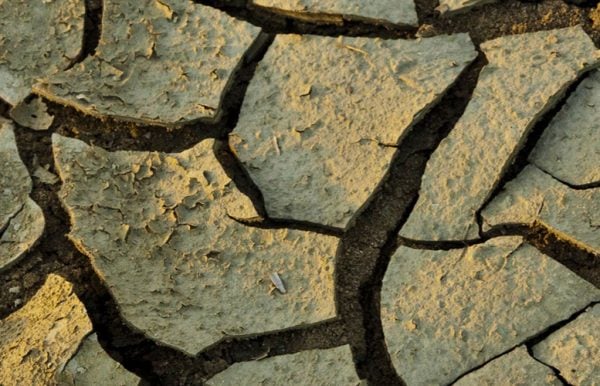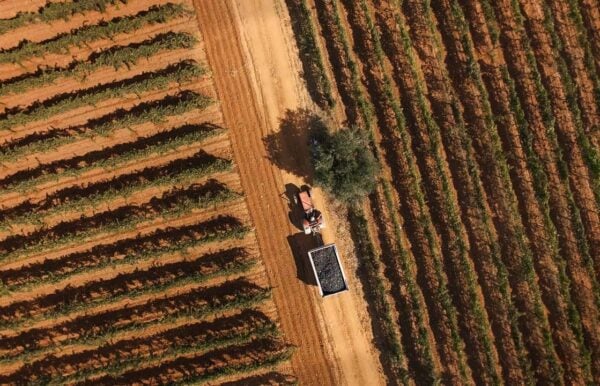Among the competitive advantages that lie at the foundations of the past and future successes of the Cantine Settesoli company, one of the most fundamental elements is our integrated, vertical business model, developed over more than 60 years of cooperation.
Since its establishment in 1958. Cantine Settesoli has become a world leader in the wine sector, developing a business model that sets itself apart for its dynamic growth.
“The business model is founded on a long-term vision that promotes the heritage of our land, stimulating productivity and excellence. It is the driver behind our company’s success, and our road to a promising future.”
Giuseppe Bursi, Chairman of Cantine Settesoli
The group’s production comprises 3 high quality global brands and 73 private label products, and Cantine Settesoli is the only Sicilian wine producer to have concentrated 6000 hectares of vineyards into a single territory, generating 40% of the revenue of the wine produced in the Sican Lands.
Cooperation
Cooperation acts as a receptor for new potential, expressed in the skill not only of the bearers of traditional knowledge but also the young, with their original ideas and innovative projects. It is a model that creates opportunities, rewards merit and improves skills that enables us to comprehensively outshine our competitors. This form of cooperation also provides us with all the tools we need to reach a happy medium between hard work, participation and sharing – not only of the entrepreneurial risks, but also the fruits of our successes and the achievement strategic objectives.
The current framework, which covers every stage of the value chain, is the result of a farsighted management decision that saw the potential in shifting from cask wines to quality bottled wines very early on. This vertical integration of the production process has gradually been sustained by the expansion of our distribution network and, more recently, the e-commerce segment. The company first started distributing bottled wines for national, traditional trade and large-scale distribution channels in the Seventies; exports began at the end of the Seventies, while distribution to the HORECA sector commenced in the early Eighties.
Today, efficient control of the production process allows our members to guarantee the utmost quality of their products and processes, facilitating the introduction of innovations and new research in both the vineyard and the cellar. It also allows us to rapidly identify potential synergies and new ways of working, which allows us to optimise service, quality and costs.
The company’s objective is not only to promote its wines on the market, but also to create growth for the community and the territory. With our fundamental attention to the development of micro-terroir – which represents the future of enology – the territory is the foundation of Cantine Settesoli’s business, but it is our spirit of innovation that drives us towards the future: a future that gets the very best from every single vineyard terroir and winegrower, all in strict adherence with the company’s sustainable production policy.
Employees
Seasonal workers
Revenue in Euro on the 30th June 2023
Percentage of revenue in italy
Percentage of revenue abroad
The company has always been firmly committed to the ethics and integrity of all its activities and relationships with the parties involved in our work.
The definition of a Code of Conduct, ethical principles and guidelines, and social and environmental responsibility, help to ensure not only the exemplary behaviour of our managers, collaborators and growers, but also our partners and suppliers.
The Cantine Settesoli Ethical Code represents a turning point in our ethical and compliance policies.
Gestione delle segnalazioni
La nostra pagina di segnalazione si trova all’indirizzo: https://cantine-settesoli-sca.
Values
Cantine Settesoli ties enormous value to territory where the grapes. We value the community because our greatest resource is our members, who together look after an enormous vineyard. We value Sicily, it’s beauty and typical characteristics, its biodiversity, aromas and history, which are also our own. We value sustainability, the love of the land and a vision that looks towards the generations of the future.
Sicily
In Sicily, the territory’s culture has become our common heritage: every wine produced by Cantine Settesoli contains the unique essence of Sicily and “Sicilianess”; a Sicily that places the accent on a beauty to be shared by all. An extraordinary island, where every corner has something unique to offer; a mini-continent of microcosms that conceals the inheritance of a complex and millenary history. Layers upon layers of ancient soil and culture that harbour a unique richness that our society preserves and bestows on the world in its wine.

Community First: more value to the grapes and the work of our members
The company structure and operational principles ensure the autonomy and responsiveness of our growers. An advanced method of transmitting internal protocols guarantees a rapid and effective decision-making process that motivates our members to work with an entrepreneurial attitude. This fluidity allows the company to rapidly respond to the needs of its stakeholders.
The company’s mission is to maximise the value of our members’ grapes, making the task of maintaining the vine cultivations within the territory more profitable, while also maintain the winegrowing tradition intact, transforming viticulture into an engine for economic development that can mitigate and prevent not only the abandonment of the territory but also unruly urban development.





